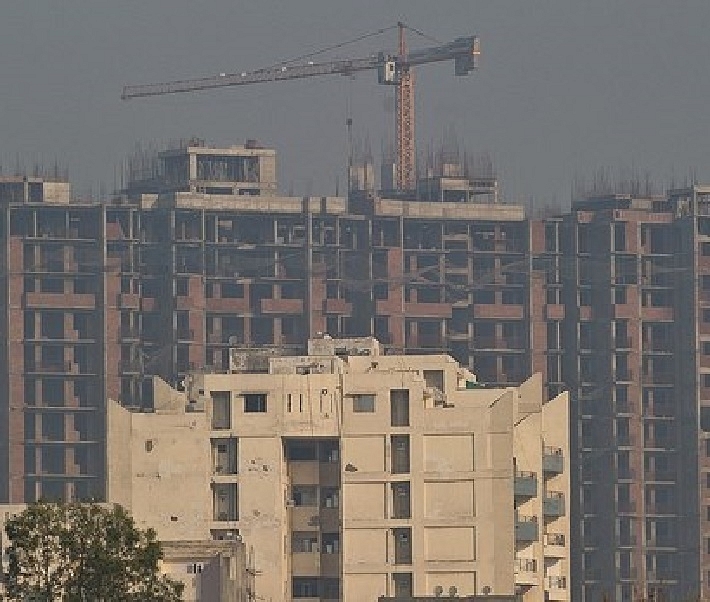Politics
Fifty Per Cent Tax On Unaccounted Deposits Is Fine; Time To Do The Same With Benami Properties
- The country is at an inflexion point in its war against corruption and black wealth after the demonetisation of old Rs 500 and Rs 1,000 notes.
- The Modi government should not ease up without completing the job of bringing benami properties into the net.

Getty Images
The Modi government’s decision to slap unaccounted bank deposits made after 8 November with a 50 per cent tax is broadly in the right direction. It has also proposed that another 25 per cent of the balance amount will be locked up in zero-interest deposits for four years. This shows that the government is keen to deploy black money in nation-building activities, financed by higher tax revenues and cheaper money.
However, a key counter-point is this: if we want to route unaccounted money into accountable activities, does it make sense to penalise the declarer to the point where he or she may prefer to take his or her chances with the law rather than pay up? The benefit of having a simpler scheme is that voluntary payments give governments easy money without legal hassles.
Assuming 8 per cent interest is forgone on the immobilised amounts, it raises the effective cost of compliance. The tax rate thus goes much higher than 50 percent.
Granted, those complying need not be shown any special favours, but government has to take a pragmatic view on how much tax will ensure greater compliance. It has to figure out the threshold of pain where compliance falls and litigation ensues. That benefits no one, and especially the poor who are the likely beneficiaries of black money inflows into government coffers.
This writer believes that 50 per cent tax is a good threshold to respect beyond which you need to use coercive methods to get money out of owners of black wealth and incomes.
Simultaneously, it may also be worth opening up a similar window for benami property owners, who now face confiscation under the draconian Benami Transactions (Prohibition) Amendment Act, 2016, which was notified earlier this month.
We need a voluntary compliance window here too, where those who declare benami properties will be spared prosecution on the payment of the same 50 per cent tax, levied on the market values of benami properties disclosed.
Benami properties probably account for the bulk of the black money in the country, and not many people (including politicians and bureaucrats) may be willing to disclose the details. This is because paying 50 per cent tax will dent their wealth immediately, and will have to be paid from bank accounts.
Since benami property owners may not have ready cash to pay the tax, the government could give them the opportunity to pay up in instalments over three years. A fourth of every year’s dues can be paid every quarter. In 12 instalments, the entire dues can be collected.
The other option would be to allow benamdars to sell their properties at whatever prices they can manage, but to levy the tax on market rates.
This would be a huge hit on benami properties, and it would be sensible to give benamdars an option to come clean before unleashing the taxman on them. A vile tax administration can often be a source of further black money generation. It is worth avoiding tax terrorism by giving people a chance to comply voluntarily.
If states can be coaxed to cut stamp duties on property sales, the centre could offer to share 25 per cent of the benami property tax revenues with them.
The important point is this: the country is at an inflexion point in its war against corruption and black wealth after the demonetisation of old Rs 500 and Rs 1,000 notes. The Modi government should not ease up without completing the job of bringing benami properties into the net.
A bonus: with these additional revenues, state elections, with suitable provisions against misuse, can easily be financed with this bonanza.
India is entering a virtuous cycle of good money driving out bad money, and the government should not pause too much before it makes its next move.
Support Swarajya's 50 Ground Reports Project & Sponsor A Story
Every general election Swarajya does a 50 ground reports project.
Aimed only at serious readers and those who appreciate the nuances of political undercurrents, the project provides a sense of India's electoral landscape. As you know, these reports are produced after considerable investment of travel, time and effort on the ground.
This time too we've kicked off the project in style and have covered over 30 constituencies already. If you're someone who appreciates such work and have enjoyed our coverage please consider sponsoring a ground report for just Rs 2999 to Rs 19,999 - it goes a long way in helping us produce more quality reportage.
You can also back this project by becoming a subscriber for as little as Rs 999 - so do click on this links and choose a plan that suits you and back us.
Click below to contribute.
Latest